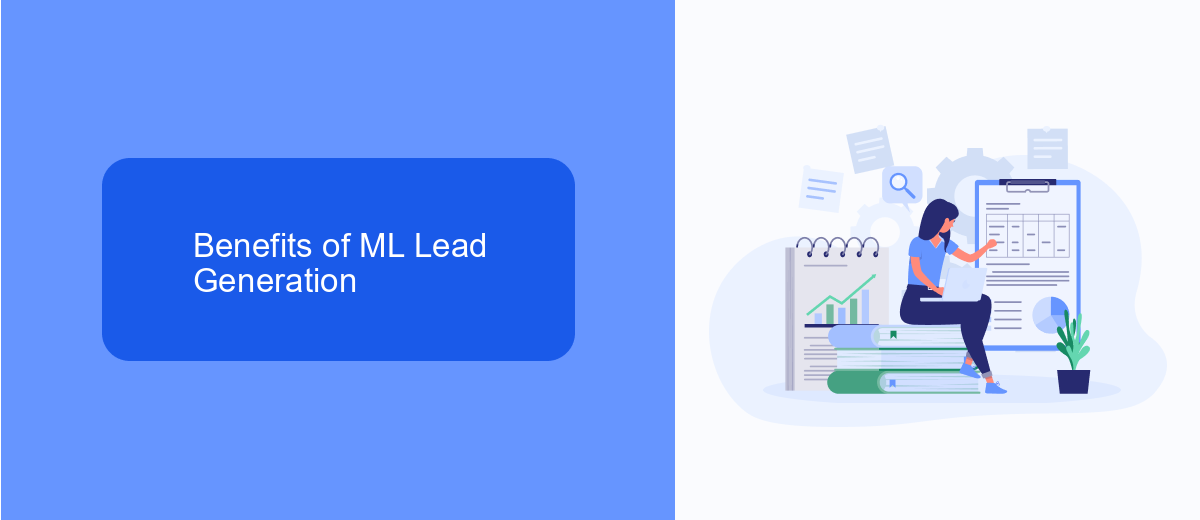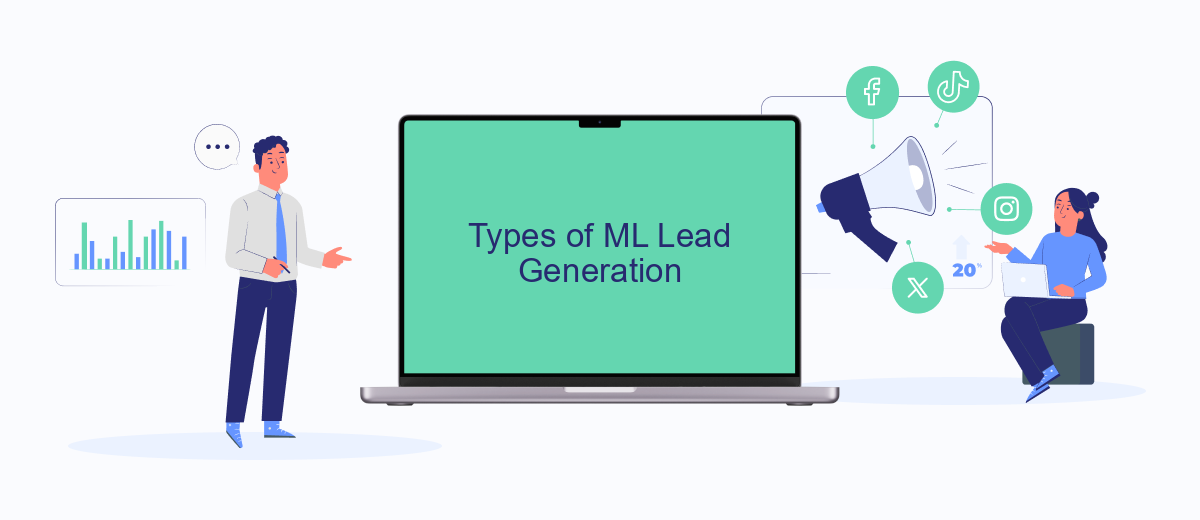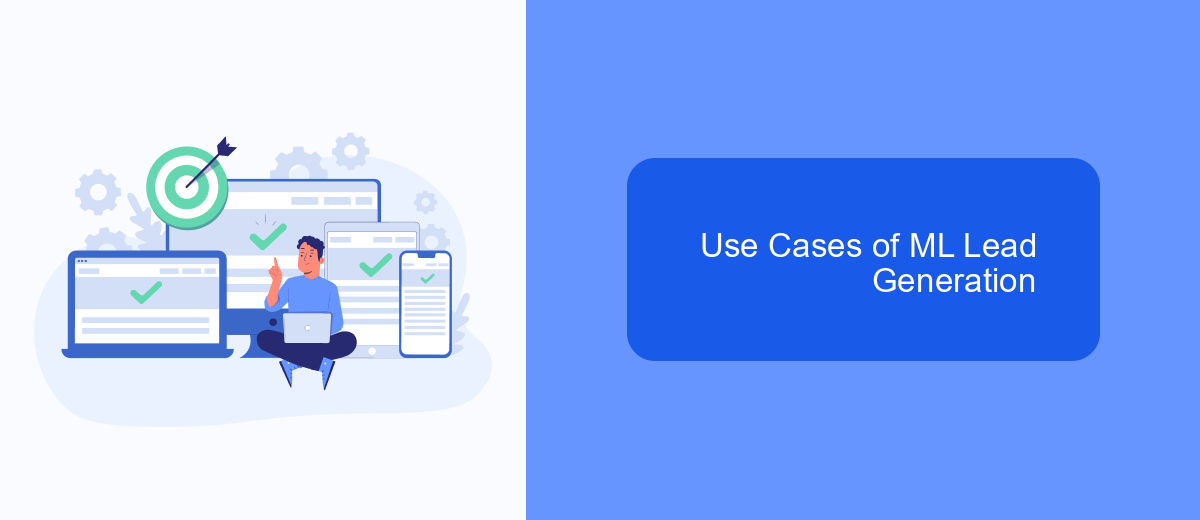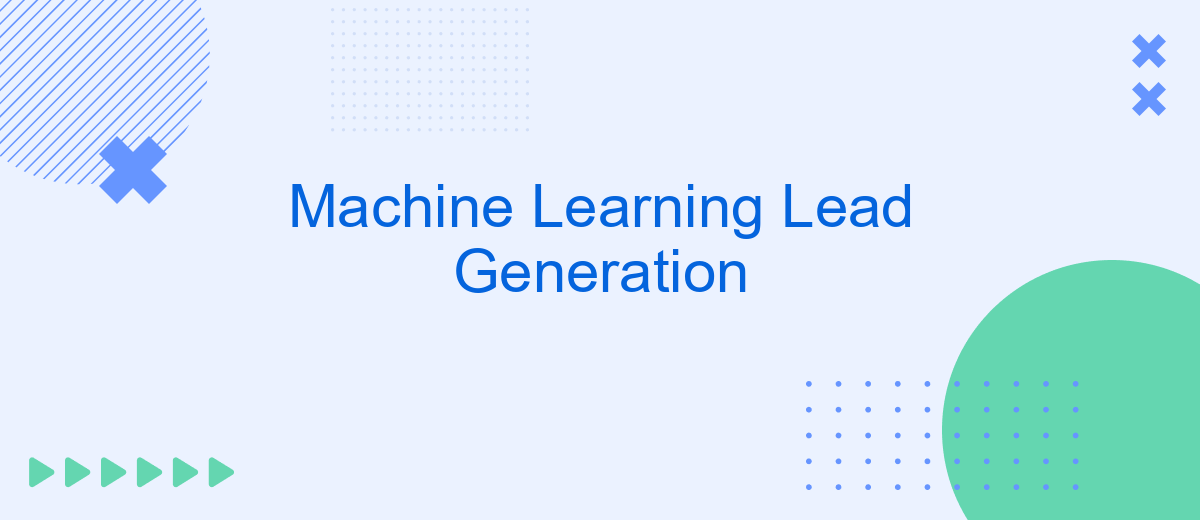In today's digital age, businesses are increasingly turning to machine learning for lead generation to stay competitive. This cutting-edge technology leverages data-driven insights to identify and engage potential customers more effectively than traditional methods. By automating and optimizing the lead generation process, machine learning not only saves time and resources but also enhances the quality and conversion rate of leads.
Machine Learning Lead Generation
Machine learning has revolutionized lead generation by automating and optimizing the process, making it more efficient and effective. By analyzing vast amounts of data, machine learning algorithms can identify patterns and predict which leads are most likely to convert. This allows businesses to focus their efforts on high-quality prospects, saving time and resources.
- Automated data analysis to identify high-potential leads
- Predictive modeling to forecast lead conversion rates
- Personalized marketing strategies based on lead behavior
- Integration with CRM systems for seamless workflow
One of the key advantages of using machine learning for lead generation is the ability to integrate with various tools and platforms. For instance, services like SaveMyLeads enable businesses to connect their lead generation processes with other applications, automating data transfer and ensuring that leads are promptly followed up. This integration streamlines operations and helps maintain a consistent and effective lead nurturing process.
Benefits of ML Lead Generation

Implementing Machine Learning (ML) in lead generation offers numerous benefits that can significantly enhance business outcomes. ML algorithms can analyze vast amounts of data to identify patterns and trends, enabling companies to target potential leads more accurately. This data-driven approach ensures that marketing efforts are directed towards individuals who are more likely to convert, thereby increasing the efficiency and ROI of lead generation campaigns.
Moreover, ML can automate many aspects of the lead generation process, saving time and resources. For instance, integrating ML with platforms like SaveMyLeads can streamline the process of capturing and managing leads from various sources. SaveMyLeads allows for seamless integration with multiple services, ensuring that leads are automatically collected and organized in a centralized system. This automation not only reduces manual effort but also minimizes errors, ensuring that no potential lead is overlooked.
Types of ML Lead Generation

Machine learning (ML) has revolutionized lead generation by automating and optimizing various processes, making it more efficient and accurate. By leveraging ML algorithms, businesses can identify potential leads, predict customer behavior, and personalize marketing efforts.
- Predictive Analytics: ML models analyze historical data to predict which leads are most likely to convert. This helps businesses focus their efforts on high-potential prospects.
- Chatbots and Virtual Assistants: AI-powered chatbots can engage with website visitors in real-time, answer questions, and capture lead information. They ensure 24/7 engagement and can qualify leads before passing them to sales teams.
- Content Personalization: ML algorithms analyze user behavior to deliver personalized content. This increases engagement and the likelihood of conversion by providing relevant information to each lead.
- Lead Scoring: ML can automatically score leads based on various factors such as engagement level, demographics, and behavior. This helps prioritize leads for sales teams.
Integrating these ML-driven strategies with existing CRM systems can be streamlined using services like SaveMyLeads. This platform automates the data transfer between various tools, ensuring that businesses can efficiently manage and nurture their leads without manual intervention.
Use Cases of ML Lead Generation

Machine Learning (ML) has revolutionized lead generation by automating and optimizing various processes. One of the primary applications is in predictive analytics, where ML algorithms analyze historical data to forecast which leads are most likely to convert. This enables businesses to focus their efforts on high-potential prospects, thereby increasing efficiency and ROI.
Another significant use case is in personalization. ML models can analyze vast amounts of data to understand customer behavior and preferences. This allows for the creation of highly personalized marketing messages that resonate with individual prospects, improving engagement and conversion rates.
- Predictive Analytics: Identifying high-potential leads based on historical data.
- Personalized Marketing: Crafting tailored messages to engage prospects.
- Automated Communication: Using chatbots and email automation to nurture leads.
- Data Integration: Leveraging services like SaveMyLeads to streamline data from various sources.
By integrating ML into lead generation strategies, businesses can achieve higher efficiency and effectiveness. Tools like SaveMyLeads further enhance this process by seamlessly connecting different data sources, ensuring that your ML models have access to the most relevant and up-to-date information.
- Automate the work with leads from the Facebook advertising account
- Empower with integrations and instant transfer of leads
- Don't spend money on developers or integrators
- Save time by automating routine tasks
Best Practices for ML Lead Generation
Implementing effective machine learning (ML) lead generation requires a strategic approach to data collection and model training. Start by gathering high-quality data that accurately represents your target audience. This includes demographic information, behavioral data, and previous interactions. Clean and preprocess this data to remove any inconsistencies or errors, ensuring that the dataset is robust and reliable for training your ML models.
Next, choose the right algorithms and tools that suit your specific lead generation needs. Test multiple models to find the best fit, and continually optimize them based on performance metrics. It's also crucial to integrate your ML models with your CRM and other marketing tools. Services like SaveMyLeads can streamline this process by automating data integration, ensuring that your lead generation system operates seamlessly. Regularly monitor and update your models to adapt to changing market trends and improve lead quality over time.
FAQ
What is Machine Learning Lead Generation?
How does Machine Learning improve lead generation?
What types of data are used in Machine Learning Lead Generation?
How can I integrate Machine Learning into my existing lead generation process?
What are the benefits of using Machine Learning for lead generation?
You probably know that the speed of leads processing directly affects the conversion and customer loyalty. Do you want to receive real-time information about new orders from Facebook and Instagram in order to respond to them as quickly as possible? Use the SaveMyLeads online connector. Link your Facebook advertising account to the messenger so that employees receive notifications about new leads. Create an integration with the SMS service so that a welcome message is sent to each new customer. Adding leads to a CRM system, contacts to mailing lists, tasks to project management programs – all this and much more can be automated using SaveMyLeads. Set up integrations, get rid of routine operations and focus on the really important tasks.

